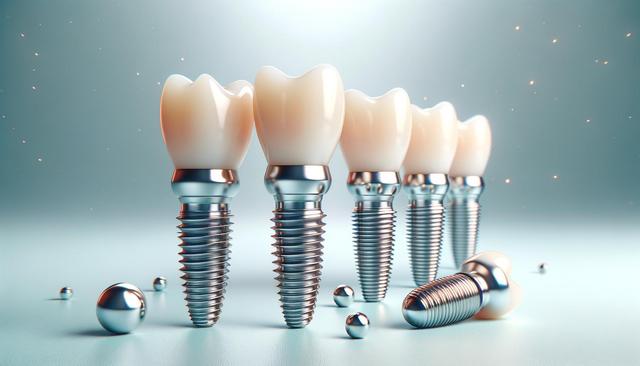Affordable Dental Implants: A Practical Guide to Restoring Your Smile
Dental implants offer a long-lasting solution for missing teeth, and finding affordable options is becoming more accessible than ever.

Understanding Dental Implants and Their Benefits
Dental implants are artificial tooth roots made typically from titanium, surgically placed into the jawbone to support replacement teeth. They are widely recognized for their durability, natural appearance, and functionality. Compared to other tooth replacement methods such as dentures or bridges, implants offer a more permanent and comfortable solution. One of the primary reasons people consider implants is their ability to prevent bone loss and maintain facial structure, which often deteriorates after tooth loss.
Some of the notable advantages of dental implants include:
- Improved speech and comfort
- Enhanced chewing ability and digestion
- Long-term reliability with proper care
- Aesthetic appeal that mimics natural teeth
Despite these benefits, many individuals hesitate to pursue this treatment due to perceived high costs. However, it’s important to note that various affordable options are now available, making dental implants more accessible to a wider audience.
Factors That Influence the Cost of Dental Implants
The price of dental implants can vary significantly depending on multiple factors. Understanding these elements can help patients make informed decisions and seek out affordable alternatives without compromising quality. Some key factors that influence cost include:
- Geographic location and clinic pricing structure
- The experience and expertise of the dental professional
- Type and number of implants needed
- Materials used for the implant and crown
- Additional procedures like bone grafting or sinus lifts
By discussing these variables with a qualified dental provider, patients can receive a detailed treatment plan that outlines all potential costs. This level of transparency is essential when evaluating affordability and ensuring there are no unexpected expenses during the process.
Exploring Affordable Options for Dental Implants
For those seeking cost-effective dental implants, several strategies can help reduce the overall expense. Many dental clinics offer flexible financing plans or payment programs that allow patients to spread the cost over time. In addition, some dental schools provide implant services at reduced rates, performed under the supervision of experienced professionals.
Other cost-saving options include:
- Comparison shopping between local clinics
- Seeking out dental tourism opportunities in countries with lower healthcare costs
- Utilizing dental discount plans or insurance coverage where applicable
It’s essential that patients carefully research each option to ensure safety and quality standards are met. While affordability is important, ensuring the procedure is performed by qualified professionals is crucial for long-term success.
How to Choose a Reliable Provider for Budget-Friendly Implants
When searching for a provider offering affordable dental implants, it’s vital to consider not just the cost, but also the provider’s reputation and credentials. Start by checking online reviews, testimonials, and professional qualifications. A reputable clinic should be willing to provide before-and-after photos of previous cases, as well as explain the procedure in detail during a consultation.
Here are some tips for choosing a trustworthy provider:
- Ask about the materials used and their longevity
- Ensure the clinic follows strict sterilization and safety protocols
- Inquire about warranties or guarantees on the implant work
- Verify that the provider is licensed and experienced in implant dentistry
Choosing the right provider may require time and research, but it significantly increases the chances of achieving a successful and lasting result without financial strain.
Maintaining Your Implants to Maximize Value
Once dental implants are in place, proper care is essential to ensure they last as long as intended. Although implants are designed to be durable, they still require regular maintenance similar to natural teeth. Good oral hygiene habits, combined with routine dental visits, will help keep implants in excellent condition for years.
Key maintenance practices include:
- Brushing twice daily with a soft-bristled toothbrush
- Using floss or interdental brushes to clean around the implant
- Avoiding hard or sticky foods that may damage the crown
- Scheduling periodic check-ups with your dentist
By investing in proper maintenance, patients can extend the life of their dental implants and reduce the likelihood of future costly repairs. This not only protects your oral health but also ensures the long-term affordability of the initial treatment.